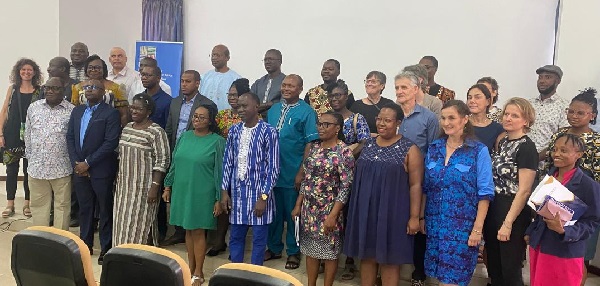A Professor of Sustainability at the Surrey Business School, University of Surrey, UK, Gavin Hilson, is of the view that Ghana is better equipped than most African countries to eliminate illegal mining, commonly known as "galamsey."
Speaking at the opening of a two-day conference on West Africa's mining sector held at the University of Ghana on Wednesday, November 27, 2024, he described galamsey as a “manufactured problem” that could be effectively addressed through the implementation of the right policies.
He emphasized the need for a paradigm shift from viewing participants in galamsey as mere “criminals” to exploring innovative approaches to formalising the artisanal mining sector.
According to him, this approach could be adopted not only in Ghana but also across other West African countries.
Prof. Hilson, a globally recognised authority on the social and environmental impacts of artisanal and small-scale mining (ASM), highlighted that artisanal mining provides livelihoods for many.
He stressed that addressing the galamsey issue does not require additional funds but rather a commitment to reorient policies and ensure all stakeholders play their roles effectively.
“Ending galamsey is about creating space for small-scale miners to acquire licenses,” he noted, adding that Ghana has always attracted donor interest in ASM but has not fully leveraged this support to formalise the sector.
The conference, held on the theme: “Sustainability in West Africa’s Mining Sector(s) – Political Trends, Popular Struggles, and Sustainable Futures,” was organised by the Merian Institute for Advanced Studies in Africa (MIASA) in collaboration with the University of Ghana.
It brought together academics, civil society representatives, policymakers, and industry players to discuss sustainable governance in the mining industry.
MIASA, based at the University of Ghana, operates in collaboration with German partners, including the University of Freiburg, Goethe University Frankfurt, the German Institute for Global and Area Studies (GIGA), and the German Historical Institute Paris.
Its research programme addresses issues of sustainable governance through interdisciplinary studies focusing on democratic governance, peace and conflict, and sustainable transformations.
Prof. Hilson called for a rethink of how artisanal miners and large-scale mining operations coexist, proposing “autonomous coexistence.”
In their welcoming address, the MIASA Director of Ghana, Prof. Grace Diabah, and Prof. Mamadou Diawara, MIASA Director, Germany, said since early September 2024, the team has been exploring sustainability in West Africa's mining sector, focusing on institutional initiatives and experiences in developing and implementing sustainability agendas.
For them, the conference adopted a cross-disciplinary and transnational lens, enabling the IF 11 team and participants to exchange ideas on current political questions of land and mineral governance in Africa.

